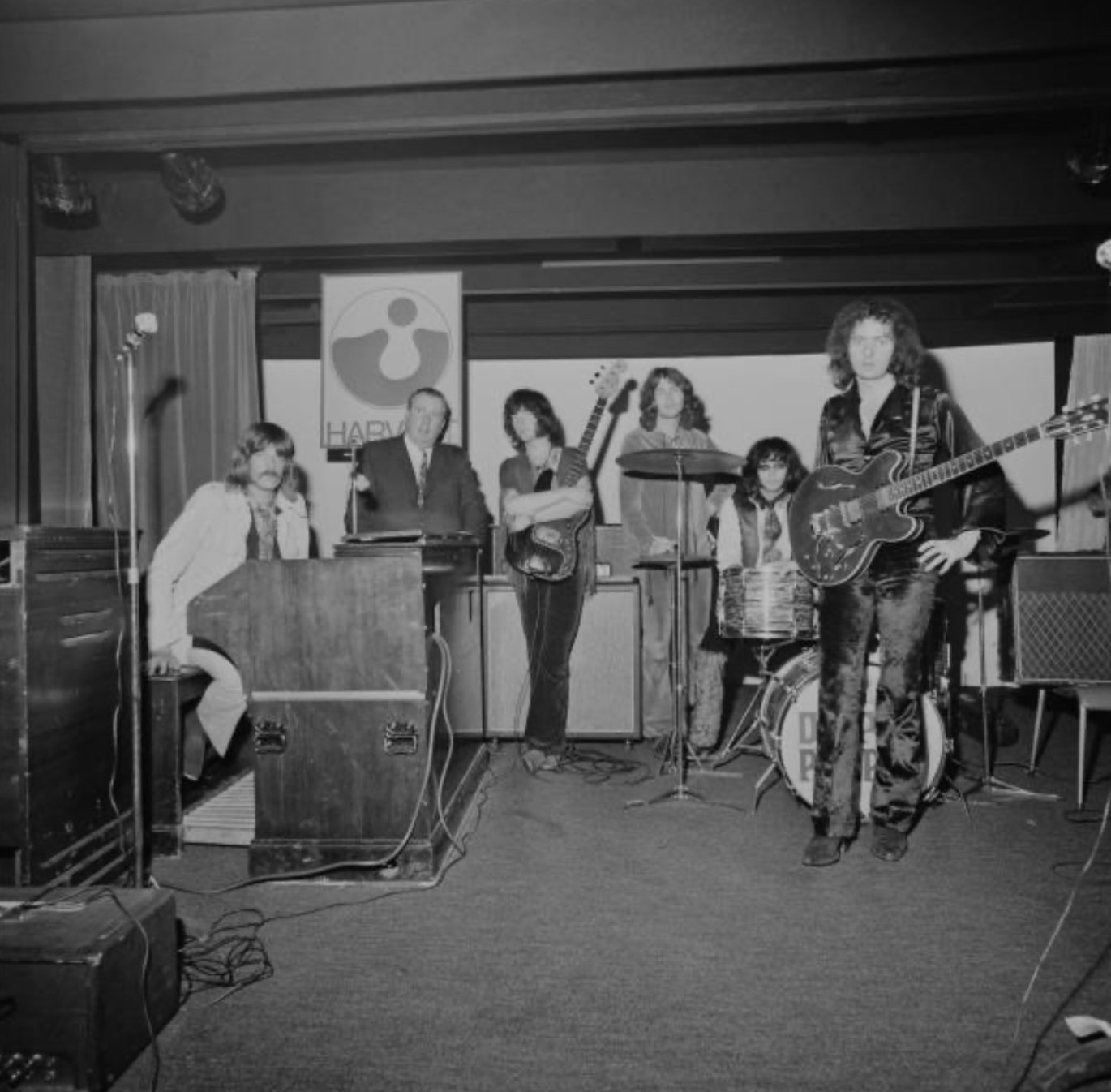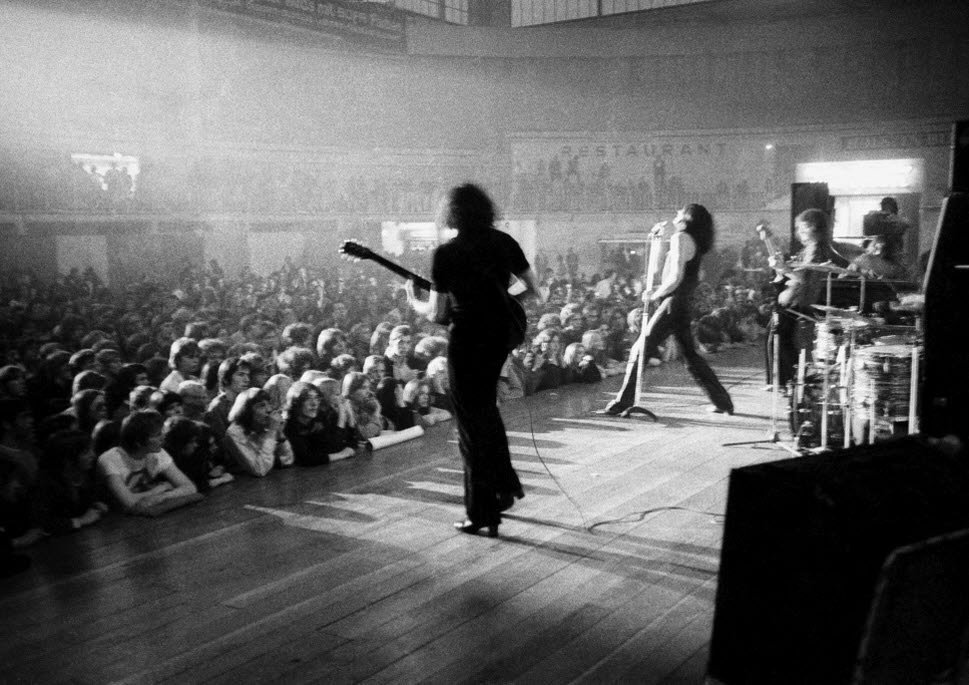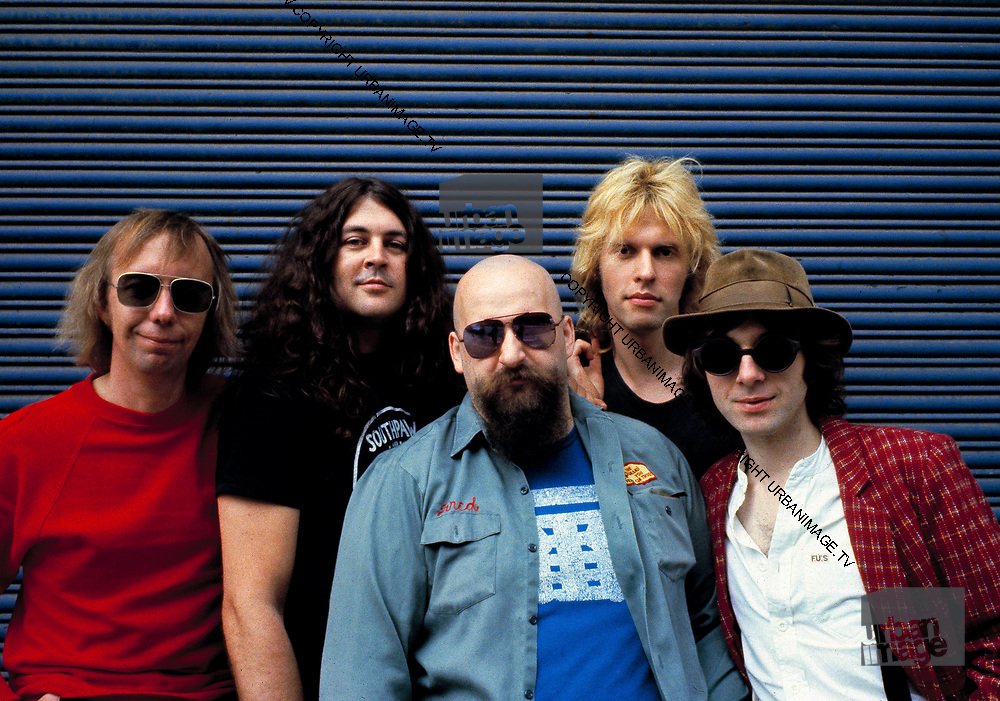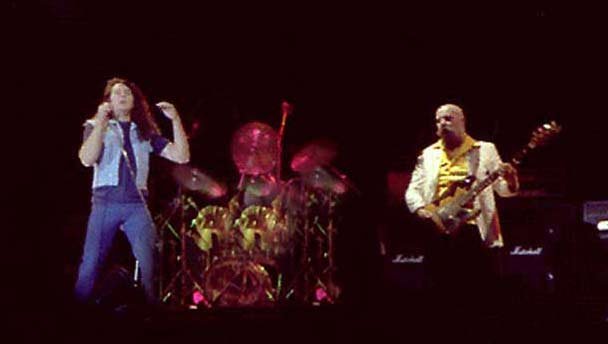Images may be subject to copyright
On this day, 4 July 1969, rock legends Deep Purple played Cardiff’s Top Rank.
It was the final show of their "Mark I" lineup, with their "Mark II" lineup following after, debuting live at The Speakeasy Club in London on 10th July, six days later.
Founding members Jon Lord and Ritchie Blackmore felt that Rod Evans, with his tender, smooth voice would not be able to cope with their louder, more aggressive material. Evans had also expressed reservations about his place in the band and voiced his wish to permanently move to the US. Tensions were also high with bassist Nick Simper, whose playing style was considered, in Paice's words, "stuck in the late '50s and early '60s" by the other band members and unfit for the new musical direction they wanted to pursue.
Singer Ian Gillan and bassist Roger Glover of the band Episode Six, who had formed a songwriting duo, were invited to join Deep Purple and replace Evans and Simper.
Early in 1969, the band released the non-album single "Emmaretta", named after Emmaretta Marks, at that time a cast member of the musical Hair, whom Evans was trying to seduce. By March of that year, the band had completed recording for their third album, Deep Purple. The album included the track "April", which featured strings and woodwind, showcasing Lord's classical antecedents such as Bach and Rimsky-Korsakov. This would be the last recording by Deep Purple Mark I.
Deep Purple's North American record label, Tetragrammaton, delayed production of the Deep Purple album until after the band's 1969 American tour ended. This, as well as lackluster promotion by the nearly broke label, caused the album to sell poorly, finishing well out of the Billboard Top 100. Soon after Deep Purple was finally released in late June 1969, Tetragrammaton went out of business, leaving the band with no money and an uncertain future (Tetragrammaton's assets were eventually assumed by Warner Bros. Records, who would release Deep Purple's records in the US throughout the 1970s).





















































